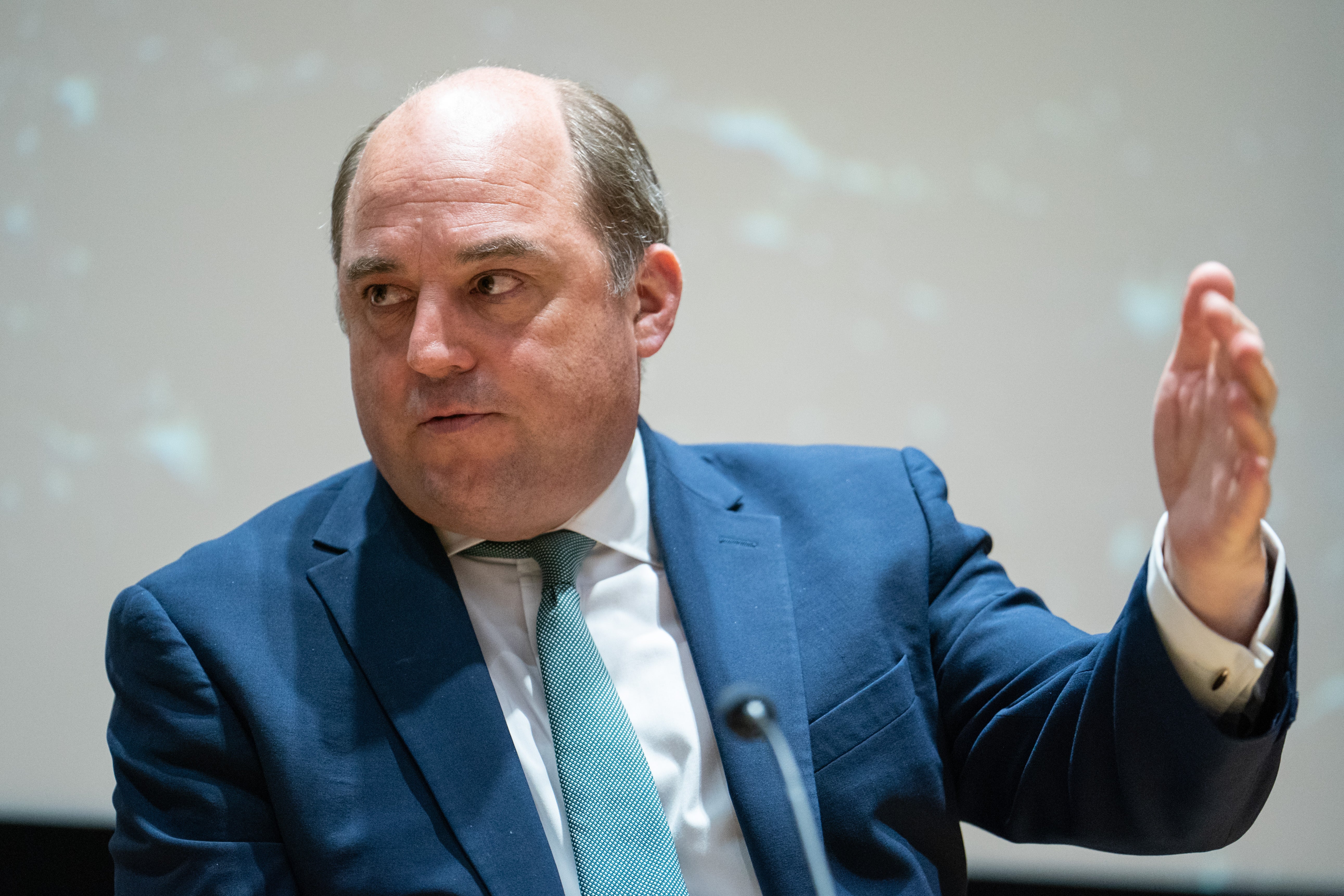Boris Johnson asks Nato allies to step up spending, as Ben Wallace attacks ‘smoke and mirrors’ UK budget
PM wants ‘greater commitments’ from allies – but defence secretary wants greater commitment from No 10 and Treasury

Boris Johnson will call on Nato allies to step up their defence spending in the face of the Russia threat, despite a scathing attack from his own defence secretary Ben Wallace on the UK’s “smoke and mirrors” military budget.
The prime minister said he would “leverage” Britain’s military spending to “drive greater commitments from other people” ahead of crucial talks with fellow Nato leaders at a summit in Madrid.
But Mr Wallace said UK forces had for too long survived on “a diet of smoke and mirrors, hollowed-out formations and fantasy savings” – after calling for the PM to commit to a 20 per cent spending increase.
It came as the new head of the British Army, General Sir Patrick Sanders, warned that any further cuts to Army troops – set to shrink from a target figure of 82,00 to 72,500 – would be “perverse”.
The row erupted after it emerged that Mr Wallace had written to the PM to ask him to hike military spending to 2.5 per cent of GDP by 2028. The defence secretary fears the target will not be hit without significant new commitments.
Mr Wallace told the Royal United Services Institute (RUSI) think tank on Tuesday: “If governments historically responded every time the NHS has a winter crisis so must they when the threat to the very security which underpins our way of life increases.”
Labour also accused the PM of “breaking” his own 2019 manifesto promise on defence spending, after a senior government source said the pledge to hike annual military spending by 0.5 per cent above inflation may no longer be met.
The government official said the country’s post-Covid finances meant there had to be “a reality check on things that were offered in a different age”.
Speaking to reporters on his journey to Madrid, Mr Johnson defended his record on defence spending and dismissed the above-inflation manifesto target – saying “you don’t look at inflation as a single data point”.
The PM said the UK’s own spending this year would be 2.3 per cent of output, well above Nato’s 2 per cent minimum target. On asking other countries to be more ambitious, Mr Johnson said the Ukraine invasion “requires us all to step up … the UK is doing so”.
Labour’s shadow defence secretary John Healey said: “The prime minister keeps breaking his defence pledges to the British public. With threats increasing and rising Russian threats, ministers must reboot defence plans and halt army cuts now.”

Foreign secretary Liz Truss, grilled by MPs about the spending row, said she was not going to interfere with negotiations between Mr Wallace and chancellor Rishi Sunak.
But when asked by the foreign affairs committee if she agreed that the budget should be increased by 20 per cent over the next five years, she said: “The free world did not spend enough on defence post the Cold War and we are now paying the consequences.”
Meanwhile, Mr Johnson suggested Britain would be sending more troops to Estonia as part of the massive surge in forces.
Nato is set to agree a huge increase in the number of troops placed on “high readiness” as part of its rapid response force, from 40,000 to over 300,000.
“We’re already got 2,000 troops in Estonia troops already,” said Mr Johnson. “We’re got two battle groups in Estonia. We’re working with premier Kaja Kallas on what we can do to be more supportive to Estonia to help them operationally.”
It comes as Turkey agreed to support Finland’s and Sweden’s bids for Nato membership, secretary-general Jens Stoltenberg said on Tuesday night.
“I am pleased to announce that we now have an agreement that paves the way for Finland and Sweden to join Nato,” Mr Stoltenberg told reporters on the side-lines of a NATO summit in Madrid.
“Turkey, Finland and Sweden have signed a memorandum that addresses Turkey’s concerns, including around arms exports and the fight against terrorism,” Mr Stoltenberg added.
Mr Johnson said earlier that “progress” had been easing concerns from Turkey about Sweden in particular over the Kurdish militant groups given a home there.
New figures shared by Nato show that the proportion spent by Britain on its military has declined to 2.12 per cent over the past year – falling for the second year in a row.
But the UK government said its defence spending was projected to rise to 2.3 per cent of GDP this year due, partly due to £1.3bn of support committed to Ukraine.




Join our commenting forum
Join thought-provoking conversations, follow other Independent readers and see their replies
Comments